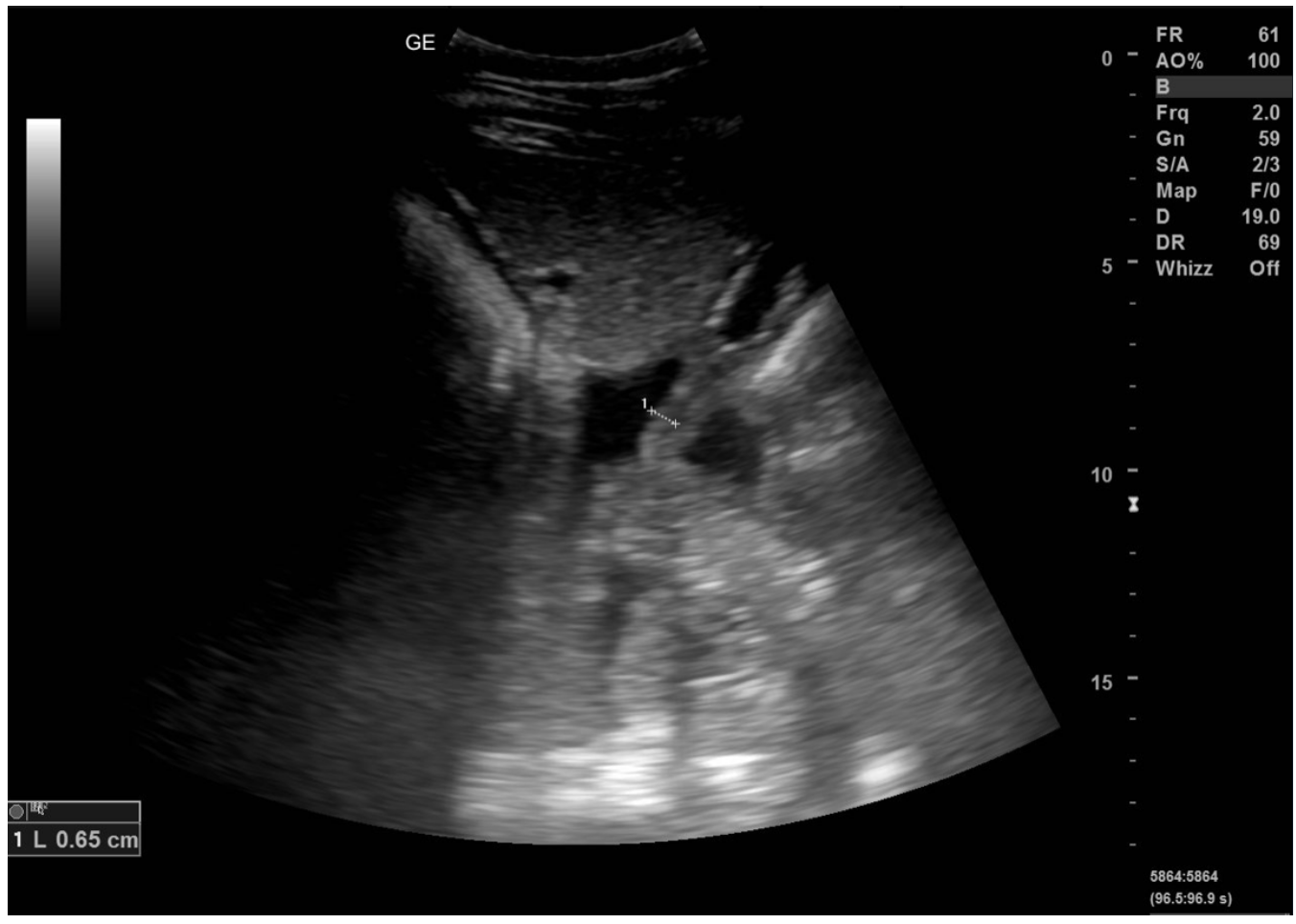Inflammatory bowel disease in horses
What are the signs?
Inflammatory bowel disease (IBD) in horses can present as one or more of the following: diarrhoea, weight loss and intermittent colic. Some horses have all of these symptoms whilst other horses might have only one. Horses with IBD can go through periods of having no symptoms at all, interspersed with days or weeks of symptoms.
What causes IBD?
Inflammatory bowel disease is a syndrome which likely has a different underlying cause or combination of causes in different horses. Sometimes an identifiable cause is not found, and it becomes a diagnosis of exclusion. Other causes of weight loss, intermittent colic and diarrhoea must be ruled out in the process of making a diagnosis of IBD. Potential causes of weight loss, colic and diarrhoea and how they are diagnosed are shown in the boxes below. Diseases that can contribute to IBD are highlighted in bold.
| Symptom | Cause | Diagnostic tests | |
| Weight loss | Infection |
Blood tests Abdominal fluid sampling |
Ultrasound Biopsies |
| Renal disease | |||
| Liver disease | |||
| Neoplasia (cancer) | |||
| Cardiac disease | Physical examination | ||
| Parasites | Faecal egg count | ||
| Dental disease | Dental examination | ||
| Gastroduodenal ulceration | Gastroduodenoscopy | ||
| Inadequate nutrients |
Physical examination Feed assessment |
||
| Metabolic disease |
Physical examination Blood tests |
||
| Small intestinal infiltrative disease |
Physical examination Rectal palpation Blood tests |
Ultrasound Glucose absorption test Biopsies |
|
|
Symptom |
Cause |
Diagnostic tests |
||
|
Colic |
Parasites |
Faecal egg count |
||
|
Intestinal displacement |
Physical examination Rectal palpation Abdominal fluid sampling |
Ultrasound |
Surgery |
|
|
Gas distension |
||||
|
Impaction |
||||
|
Enterolith, sand |
||||
|
Abdominal mass |
||||
|
Small intestinal infiltrative disease |
Physical examination Rectal palpation Blood tests |
Biopsies Glucose absorption test |
||
|
Enterocolitis |
Faecal culture and PCR |
|||
|
Right dorsal colitis |
Physical examination Rectal palpation |
|||
|
Liver disease |
Blood tests |
|||
|
Kidney disease Kidney or bladder stone |
||||
|
Neoplasia (cancer) |
||||
|
Gastroduodenal ulceration |
Gastroduodenoscopy |
|||
| Symptom | Cause | Diagnostic tests | |
| Diarrhoea | Enterocolitis |
Physical examination Rectal palpation Blood tests |
Ultrasound Faecal culture and PCR |
| Intestinal infiltrative disease |
Ultrasound Biopsies Glucose absorption test |
||
| Dysbiosis (bacterial imbalance) | |||
| Right dorsal colitis |
Physical examination Rectal palpation |
Ultrasound | |
| Enterolith, sand |
Ultrasound Surgery |
||
| Parasites | Faecal egg count | ||
| Toxicity |
Physical examination Blood tests |
||
| Neoplasia | Blood tests |
Ultrasound Abdominal fluid sampling |
|
What is enterocolitis?
Enterocolitis means inflammation of the small intestine (enteritis) and large intestine (colitis). Some horses will have one or the other of these disorders but they can also occur together. Common infectious causes of enterocolitis include salmonella sp., clostridium perfringens or clostridium difficile. Horses under 12 months can have infections with Lawsonia Intracellularis which causes severe loss of protein from the intestinal tract.
What is intestinal infiltrative disease?
Intestinal infiltrative diseases have changes to the normal cell types present in the intestine. They are often suspected based on thickening of the intestine seen with ultrasound (Figure 1). They are confirmed through biopsy (sampling and evaluation under a microscope). Biopsies can be taken from the duodenum (first part of the small intestine) through the endoscope during gastroduodenoscopy. They can also be taken from the rectum. With the aid of sedation and or general anaesthesia, samples can be taken from the intestine with laparoscopy (placement of a scope into the abdomen) or laparotomy (general surgery on the abdomen). Laparotomy allows for the intestines to be fully assessed and also would identify an abdominal mass such as an enterolith (large collection of minerals causing a blockage of the intestine). The most commonly diagnosed intestinal infiltrative diseases are lymphocytic-plasmacytic enterocolitis, eosinophilic enteritis, granulomatous enteritis and lymphoma (a type of cancer).

What is dysbiosis?
Dysbiosis refers to an imbalance of bacteria within the intestinal tract. Adult horses are reliant on bacterial fermentation of non-digestible fibres in the hindgut for much of their nutritional needs. Healthy horses have very diverse bacterial populations. Horses with dysbiosis have less diverse bacterial populations and higher numbers of “bad bacteria” such as Escherichia sp and Fusobacterium. It is thought that these changes in bacterial populations are both a cause and effect of intestinal inflammation.
How is IBD treated?
Treatments for IBD include careful deworming programs in combination with medications that reduce inflammation and protect the gastrointestinal lining, plus supporting healthy bacterial populations. Anti-inflammatory medications include corticosteroids (dexamethasone and prednisolone), azathioprine and supplementation of omega 3 fatty acids (EO3). Medications that protect the gastrointestinal lining include sucralfate and misoprostol. Healthy bacterial populations can be supported through a good diet high in fibre and low in non-structural carbohydrates (glucose, fructose, lactose, sucrose and starch), hindgut buffers, yeasts such as sacchomyces boulardii, yoghurt, probiotics. Sometimes a transfaunation procedure will be performed, which involves administration of faeces from a healthy donor horse into the stomach via nasogastric tube. It is hoped that this transplant allows for greater diversity of bacteria in the recipient. The role of dietary allergens is not well understood in horses. However, it is often recommended that a bland diet is trialled as part of the treatment.
HAVE A SUGGESTION? WANT TO KNOW MORE ABOUT A PARTICULAR ISSUE? HAVE QUESTIONS FROM THIS ISSUE?
Get in touch with our Vet Team on reception@seeh.com.au